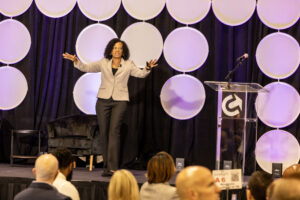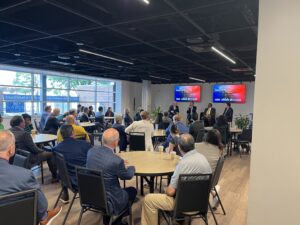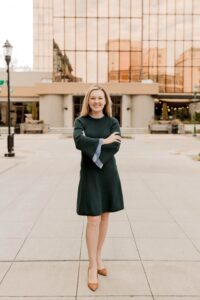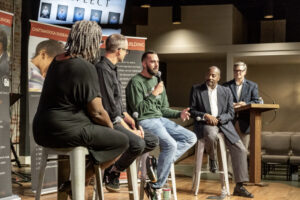Harry W Severance, M.D.
Dr. Harry W Severance is an attending physician at Erlanger and assistant professor at Duke University School of Medicine. He has been in practice for more than 20 years. Read some of his other work here and here.
Ideas and opinions represented here are those of the individual doctor and not of Erlanger Health System.
In various media outlets, online sources and other forums lately, we’ve seen proposals that the vaccine cards received by those vaccinated against COVID-19 might serve as a passport of sorts — allowing those who can prove they are vaccinated increased opportunity for travel, discounts, freebies and other perks. Multiple organizations are working on such options, and some are already offering them.
I propose here some hypothetical scenarios related to the vaccine and how it might affect the resurgence of travel, dining and conferences — some of the key items we’ve given up for an entire year in favor of social distancing and isolation.
Scenario 1
Some broad-based enterprises such as airlines, cruise ships and other similar companies may make company policy decisions that would have national or international impact on how we handle COVID-19 issues going forward.
In making these decisions, they’ll have to consider:
- Legal and verification issues, including developing research confirming that vaccinated people don’t transmit the COVID disease.
- Vaccine passports aren’t practical until vaccines are accessible to the general population, specifically to travelers. (In Hamilton County, we’re getting there – recently vaccine access expanded to include anyone over 16.)
- For vaccine passports to be an internationally practical tool, there will need to be a standardized platform that crosses all boundaries — such as the current passport system.
- Ethical issues, for example, those who are not vaccinated could find themselves denied services such as commercial travel.
Since the available COVID vaccines may not be as effective against new SARS-CoV-2 variants, we may see a two-factor passport setup for long-distance travel; perhaps combining proof of vaccination with a reliable, non-invasive, rapid SARS-CoV-2 antigen test at the time of boarding. This combination would virtually guarantee lack of disease progression in such travel environments.
Scenario 2
Cities have faced shutdown devastation of much of their downtown retail economies due to COVID-19 social distancing and lockdown rules, added to the steadily mounting toll of social isolation and its effects. Many long-standing businesses have closed, many will not reopen, projected tax revenues have significantly decreased, and communities face an uncertain future.
A long-standing community business — let’s say a restaurant owner — approaches the City Council begging for assistance. This business has been a successful part of the city for years and has historically and frequently given back to the area with donations and other efforts. However, now they are within a few days of having to declare bankruptcy.
They ask for a waiver of the no-inside-dining rule (while our area isn’t currently under this mandate, some communities still are), as that could potentially save their business. They have proposed as a compromise measure that they will, similar to checking ID for alcohol consumption, ‘card’ patrons and only seat those with vaccine cards.
If you were a Council member, looking for a compromise that both addresses COVID-19 and restarts the economy, what do you think your decision might be? If the State has established certain standards, the City may now go to the State proposing this exception. I bet that most local decisions will be in favor of ‘carding’ for vaccine status. And, as one community moves in this direction, more may follow.
Scenario 3
A more focused scenario will involve health care workers returning to required and/or elective continuing medical education (CME) activities. Most practicing clinicians have now had the opportunity to become vaccinated, but still most CME meetings are held online.
Unfortunately, as many of us have experience working remotely, this format is not as effective in many scenarios. As far as scientific assemblies and medical conventions — there’s growing recognition that in-person assemblies are critical to imparting up-to-date medical information and improving clinical care.
This offers municipalities a unique window of opportunity to restart tourism economies by opening their doors to convention-style activities such as medical-based conferences, with the requirement that attendees register with their vaccine cards.
This could become a template for restarting other convention and meeting business.
. . .
Whatever the vaccine’s implications, if we evolve to an internationally recognized system of health passports or monitoring, that could help us survive an upcoming pandemic with worse dynamics than COVID-19. Since 2002, we have seen outbreaks of SARS-CoV-1, West Nile, Dengue, Ebola, MERS, Zika, Chikungunya and now COVID-19. With the accelerating worldwide population and increasing global temperatures, pandemic infections are on the rise and we will probably see more of them, rendering our experience with this pandemic invaluable.
The information in this article is not a substitute for professional medical advice, diagnosis or treatment. All content, including text, graphics, images and information, contained in or available through this article is for general information purposes only. Chattanooga Area Chamber of Commerce makes no representation and assumes no responsibility for the accuracy of information contained in or available through this article. The information is subject to change. You are encouraged to confirm any information obtained from or through this article with other reliable sources, and review all information regarding any medical condition or treatment with your physician.







